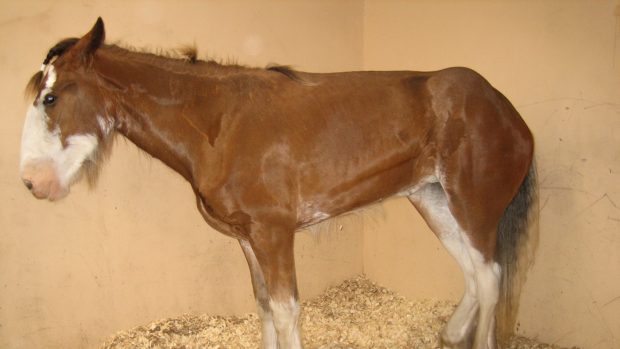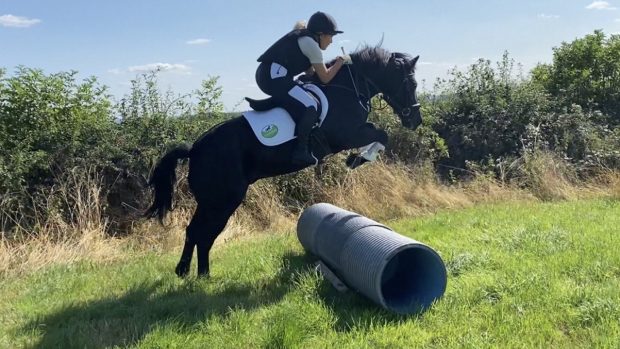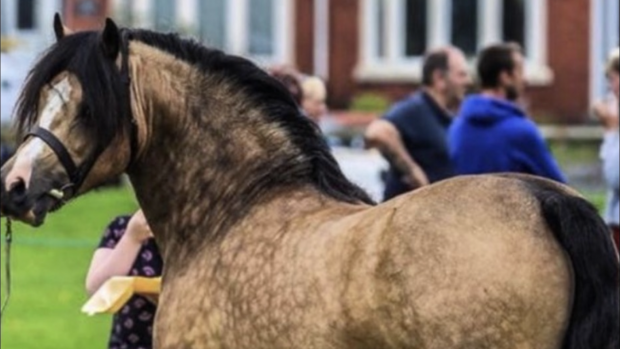Grass sickness is a particularly unpleasant and potentially fatal equine condition, which damages the nervous system, leading to paralysis of the gut. The cause of this illness is currently unknown but it occurs almost exclusively in horses with access to grass, hence the name.
Most cases of grass sickness occur between April and July, with a peak in May, according to The Equine Grass Sickness Fund (EGSF), a charity dedicated to supporting and advancing research and treatment of grass sickness.
The EGSF has found that the majority of cases occur in horses aged between two and seven, with three- and four-year-olds at greatest risk, although horses of all ages can be affected. Britain has one of the highest incidences of grass sickness in the world, with cases found in throughout England, Wales and Scotland.
Philippa Gammell, Chairman of the EGSF, says: “Grass sickness is a painful and distressing disease of horses, ponies and donkeys and is often fatal. Owners need to be particularly vigilant at this time of year. They should observe their animals for any changes in their normal eating and drinking habits or behaviour.”
Grass Sickness occurs in three main forms: acute, subacute and chronic. In the acute form, and in most subacute cases, euthanasia is the only option, but some cases of chronic grass sickness have been treated successfully. A vet should be called immediately if grass sickness is suspected.
Typical symptoms
The clinical signs in acute cases are severe and appear suddenly. Paralysis of the gut leads to typical colic symptoms including rolling, pawing at the ground and looking at the flanks. This may be accompanied by difficulty in swallowing and drooling of saliva. The stomach may become distended and a foul-smelling fluid may drain down the nose. Constipation is usual, but if any dung is passed, the pellets are small, hard and coated with mucus. Fine muscle tremors and patchy sweating may occur. In this form, the disease is fatal and the horse should be put down once the diagnosis is made.
In subacute grass sickness, the symptoms are similar to those of the acute disease but are less severe. Accumulation of fluid in the stomach may not occur but the horse is likely to show difficulty swallowing, mild to moderate colic, sweating, muscle tremors and rapid weight loss. The outlook for most cases is bleak.
In chronic cases, the symptoms come on more slowly and only some show mild, intermittent colic. The appetite is likely to be reduced and there will be varying degrees of difficulty in swallowing. One of the major symptoms is rapid and severe weight loss, which may lead to emaciation. Chronic cases have a much better chance of survival than acute cases.
Avoiding the risk
The cause of grass sickness has not been proven but it is known that the concentration of Clostridium botulinum type C toxin is high in the intestine of acute cases. Horses with low levels of antibody to the bacteria and its toxin are believe to be at increased risk from the disease.
According to Dr Scott Pirie, from University of Edinburgh Large Animal Hospital several studies have identified risk factors associated with an increased incidence of grass sickness and protective factors associated with a decreased incidence of grass sickness.
Measures to reduce the risk of grass sickness include:
- Do not graze pasture where a previous case has occurred
- Minimise disturbance of the grass and soil (by harrowing, mechanical dropping collection etc)
- Do not over graze fields or allow them to become poached
- Avoid sudden changes in diet
- Rotate the types of chemical wormer being used
Measures believed to help prevent grass sickness include:
- Sharing grazing with cattle or sheep
- Regularly “top” grass
- Remove droppings by hand
- Feed hay or haylage in addition grass
For more information about grass sickness visit: www.grasssickness.org.uk




